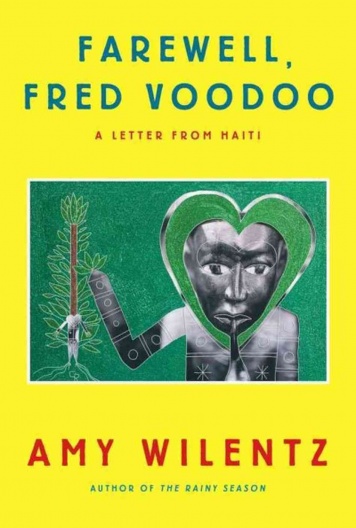Farewell, Fred Voodoo: A Conversation on Haiti

On May 6 the Dart Center and the Earth Institute at Columbia University cohosted a conversation with Amy Wilentz about her new book, Farewell, Fred Voodoo. The conversation was moderated by the Center on Globalization & Sustainable Development’s Tatiana Wah, and the Dart Center’s Bruce Shapiro.
When Amy Wilentz first traveled to Haiti in the 1980s, it was a nation in profound turmoil. The authoritarian rule of the Duvaliers was collapsing. But most of the foreign reporters covering the country could shed no light on the situation. They quoted politicians and generals, rounded up the usual sources, and filled out their stories with man-in-the-street quotes tailored to the conventional wisdom of the moment.
But Amy Wilentz found another way. While other reporters traded clichés, she patiently hung around churches, orphanages, slums, morgues, and hospitals—slowly documenting the state of the country and earning the trust of people whose voices could never be heard in conventional reporting.
Her resulting book "The Rainy Season: Haiti Since Duvalier," published in 1989, brought the country’s struggles to the attention of thousands. She has followed that book with another feat of journalistic excellence, "Farewell, Fred Voodoo," chronicling Haiti following the 2010 earthquake. That book was the subject of the discussion, moderated by Shapiro and Wah.
Wilentz writes in "Farewell, Fred Voodoo" that she “wanted to explain the perception that the average Haitian is sitting around, after the earthquake, being once again ‘resilient’—a favorite word of outsiders when they note the Haitians’ special ability to put up with the ignorance and downright humiliation that others often dish out to them, as well as the series of unfortunate events that their history has comprised.” Wilentz also describes the daily lives of Haitians, including some of the orphan boys and other friends from her first visits a quarter-century ago.
The book challenges the clichés and presumptions of aid agencies, reporters and non-Haitian politicians who flooded the stricken nation after the earthquake, trying to understand “why the outside world keeps sticking its fingers in the messy Haitian pie,” she writes. “Did we imagine we would pull out a plum?”
Wilentz provides a memoir of her own relationship to Haiti and her "inability to stay away." It is a book as unsparing about herself as about others, a guidebook for any foreign correspondent seeking to find a way of doing it better.